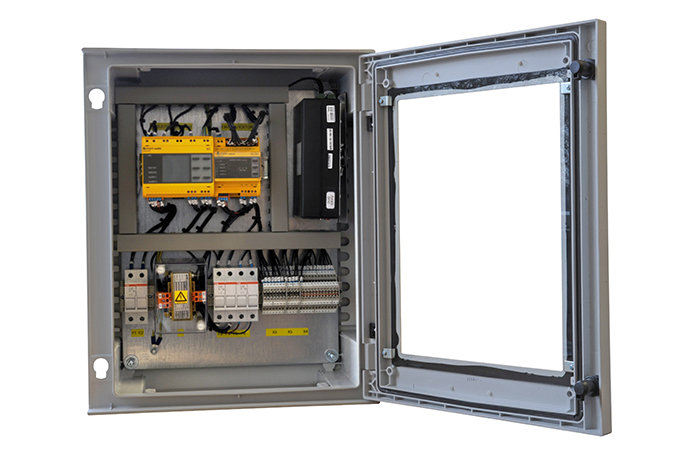
Network Rail has approved Bender UK’s next generation RS4 Rail Signalling Power Protection system that delivers increased sensitivity for first earth fault location and enables compliance with Network Rail’s Insulation Monitoring and Fault Location requirements.
The new RS4 employs tried and trusted Bender technology to deliver the multiple-tier smart cable insulation monitoring. RS4 Tier 3 has increased sensitivity for improved feeder first fault location from the 20kΩ pre‑warning level to 100KΩ or higher, depending on system capacitance. It has improved performance of Bender’s already proven RS systems to offer a holistic picture of cable health, along with a rich data set that meets the requirements of standard NR/L2/SIGELP/27725.
The Certificate of Acceptance (PA05/04750) confirms Network Rail’s acceptance Bender’s Tier 3 RS4 which makes it simple for new devices and upgrades to be procured. The Tier 1 and 2 versions are also undergoing final testing to also achieve certification.
The retrofittable RS4 solution can upgrade existing RS2/RS3 installations in less than an hour without disconnection. It offers cost-effective continuation for legacy equipment that is compatible with existing Intelligent Infrastructure remote condition monitoring through GSM‑enabled data loggers.

Bender’s Tier 2 solution provides full insulation resistance levels of individual feeders with increased system visibility at minimal extra cost over Tier 3 technology and is fully upgradeable to deliver a Tier 1 solution.
The RS4 Tier 1 provides full insulation resistance levels of individual cable subsections and within FSP’s (Functional Supply Points). It also offers the flexibility to deliver tailor-made solutions on a project-by-project basis. It is fully retrofittable and compact for utilisation within SIN119 remedial works. No 650V or earth reference connection for FSP installations is required, meaning the 650V power supply doesn’t need to be shut-down during install. That ensures Bender’s Tier 1 solution is fully class 2 compliant and does not compromise the integrity of Class 2 enclosures or create risk of electric shock injury to personnel.
The RS4 has customised data and communication options enabling project customisation that can be integrated into existing Intelligent Infrastructure. Trackside equipment can be incorporated into existing FSP architecture and the Tier 1 solution offers remote fault location to FSP or cable length, with precise manual fault finding at 100KΩ.
Alongside enhanced sensitivity for ‘first earth fault’ location RS4 measures capacitance, voltage and frequency delivering data within the standard display options to provide more information to help assess the health of the system.
RS4 continually monitors insulation values to show real-time status of the power system. When the insulation value (IR) drops the system records the fault and a test current signal or pulse put into the system is pulled to earth at the point where the fault exists.
Portable Bender equipment can be employed trackside for measuring and analysing sections of the power network to prioritise installation programmes. Recent improvements to the portable kit include more sensitive clamps and receiver technology to deliver exact fault location up to 100kΩ. Self-powered through connection to the trackside signal electrical network and delivering live monitoring of the system status, the portable fault location equipment can also provide independent verification of RS system performance.
The RS4 Tier 3 PADs database number is 0086/001406. Individual PADS have also been applied to Bender components to deliver cost effective product upgrades.
Bender UK has a proven track record with over 1,000 rail power insulation monitoring systems installed across UK rail networks over the last two decades.
Further information contact Tony Edwards, Rail Business Manager at Bender UK or visit the website: www.bender-uk.com/products/signal-power-protection-systems-overview.











McMurtry Spéirling defies gravity using fan downforce
Ground effect fans were banned from competitive motorsport from the end of the 1978 season following the introduction of Gordon Murray's Brabham...